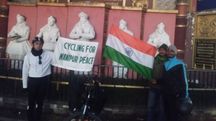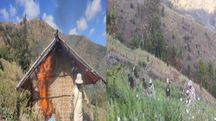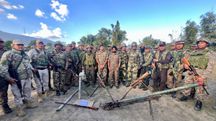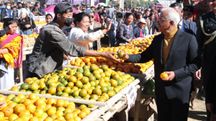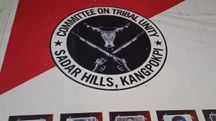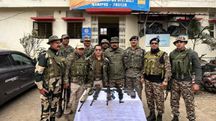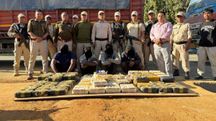Manipur: Meetei Council urges PM Modi to restore Moreh to pre-1991 status
Meetei Council Moreh (MCM) submitted memorandum to prime minister Narendra Modi seeking his intervention for restoration of multicultural town of Moreh to pre-1991 status.
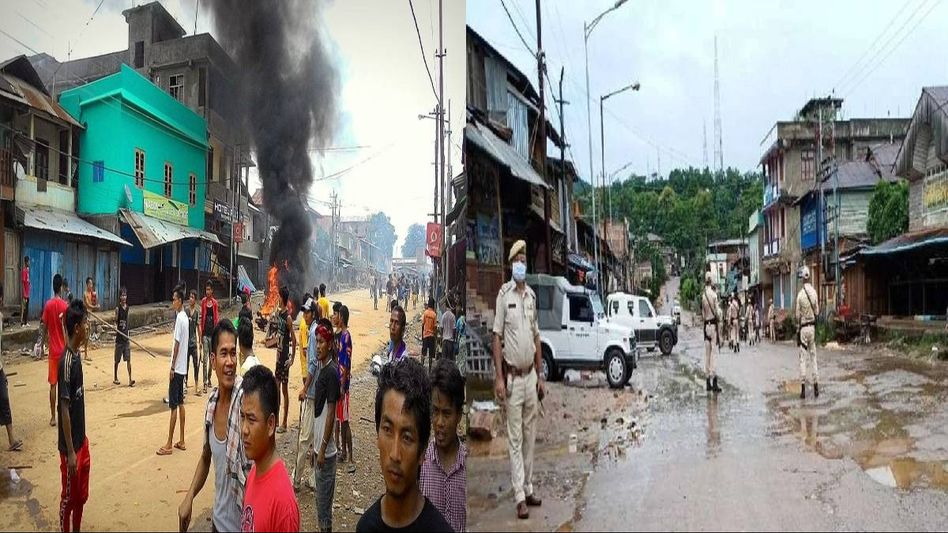
Meetei Council Moreh (MCM) submitted memorandum to prime minister Narendra Modi seeking his intervention for restoration of multicultural town of Moreh to pre-1991 status.
In a memorandum signed by its general secretary, Brojendro Meetei has stated that Kuki families should not be allowed to settle at Moreh if government fails to take up appropriate measure to return and rehabilitate all the people driven out from Moreh by Kuki militants.
Drawing attention of Prime Minister Modi, the memorandum recollected historical composition of Moreh, border town of Manipur and influx of illegal immigrants from Burma.
“The Meetei Council, Moreh, Manipur, would like to draw your kind attention to the situation of Moreh town in the Indo-Myanmar border for your kind intervention and necessary action. The Council seeks to clarify the historical composition of Moreh, a border town established by the Meiteis, Tangkhuls, Tamils, Punjabis and Meitei Pangals. The influx of Kukis occurred later, with a significant portion being deemed illegal immigrants from Burma (Myanmar). The ethnic cleansing of the various communities from Moreh by the Kuki Militants and their supporters happened in the post 1991 period,” MCM has written to prime minister Modi seeking his attention.
The memorandum stated that the stand of the council is well supported by the historical records regarding the origin of Moreh town. Meiteis were among the first settlers of the border outpost of Moreh while Tamu remaining a commercial place settled and frequented by the Meitei, and Awa as well as Chinese Traders. Moreh was originally the land of Meiteis and Nagas (Tangkhul, Maring, Lamkang and Moyons) with a few Kukis (Baites and Zous).
Amongst tribes under Kuki nomenclature, Solim Baite and his family came to settle in Moreh after 1950. Meitei Pangals also settled in Moreh at the same time as Meitei. Tamils and Punjabis also came to settle in the Moreh town when General Ne Win seized power in Burma in 1962 and ordered all non-Burmese, including people of Indian origin who had been staying there for decades, to leave the country, it added.
The memorandum also mentioned that for a long time Meiteis constituted the majority of the population with Tamils coming next. The population of Moreh Town was 108 only in 1951 increased to 690 in 1961 and 3581 in 1971. After becoming a Small-town committee after statehood in 1972, the population of Moreh was 7,678 in 1981. Out of the 9 wards of the Moreh Town Meiteis settled as majority in 5 (five) wards of 3, 4, 6, 7, 8 and 9.. There were only Zou Leikai and Baite Leikai then from the Kuk-Zo group. Nagas lived alongside the Meiteis.
In May 1990, the National League for Democracy (NLD) led by Aung San Suu Kyi registered a landslide victory in Myanmar. However, the military junta refused to recognize it, and there was a large-scale mass protest; the military junta cracked down on the protestors, and thousands of Kuki tribes migrated illegally to Manipur and settled in Moreh. Chavangphai and Kanan Veng was formed by then.
The Myanmar-based insurgent group KNO/KNA came along and started operating in Moreh with active support from some powerful Kuki politicians. An ethnic clash broke out between Naga and Kuki in 1992 in Moreh, and it immediately spread out all over the hill districts. The Kukis killed many Nagas and burned down their houses in Moreh. Most Nagas were forced to flee Moreh.
After the Tribal Solidarity Rally on May 3, 2023, the Kuki militants and their supporters brutally attacked the Meiteis, Tamils, Punjabis, Meitei Pangal, Biharis and Nepalis by burning down their homes, and drove them out Moreh, it stated.
Also read: Assam: Election worker allegedly taken away by police personnel for questioning ahead of polls
Copyright©2025 Living Media India Limited. For reprint rights: Syndications Today
